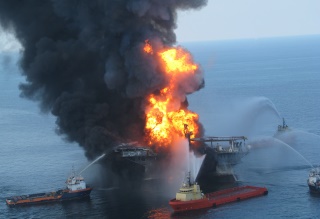BP has agreed to pay a record $18.7 billion to settle claims by the federal government and five Gulf Coast states over the deadly 2010 Deepwater Horizon oil spill — the worst in U.S. history.
The payments to be made over 18 years include: a civil penalty of $5.5 billion to the U.S. under the Clean Water Act (CWA); $7.3 billion to the U.S. and Florida, Alabama, Mississippi, Louisiana and Texas for natural resource damages; $4.9 billion to settle the states’ economic and other claims; and up to $1 billion to 400 local governments.
“This agreement will resolve the largest liabilities remaining from the tragic accident,” BP CEO Bob Dudley said in a statement Thursday. “For the United States and the Gulf in particular, this agreement will deliver a significant income stream over many years for further restoration of natural resources and for losses related to the spill.”
Last year, U.S. District Judge Carl Barbier, New Orleans, found BP guilty of gross negligence and willful misconduct in the disaster that killed 11 people and spewed oil for nearly three months into the Gulf of Mexico. Earlier this year, he ruled that the accident unleashed 3.19 million bbl. of oil — midway between the government’s claim of 4.19 million bbl. and BP’s estimate of 2.45 million bbl.
The amount was crucial because of the potential fine, which the court was considering. CWA penalties of $1,100 bbl. can rise to $4,300 when the spill results from gross negligence for a difference of about $18 billion for the government versus $13.7 billion for the lower amount.
The company appealed the gross negligence finding, took a $43.5 billion pre-tax charge for the spill and set aside $3.5 billion for CWA penalties.
Still ahead are definitive agreements including a consent decree subject to public comment and court OK. The CWA and resource damage payments will start a year after the agreements become final.
The Justice Department said the deal, if approved by the court, would be “the largest settlement with a single entity in American history.”
Attorney General Loretta Lynch said, “It would help repair the damage done to the Gulf economy, fisheries, wetlands and wildlife; and it would bring lasting benefits to the Gulf region for generations to come.”




